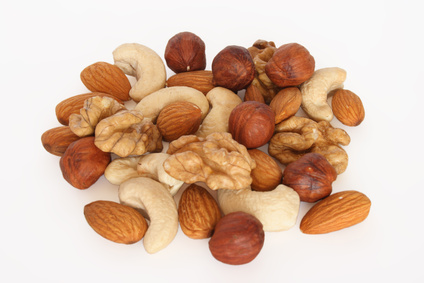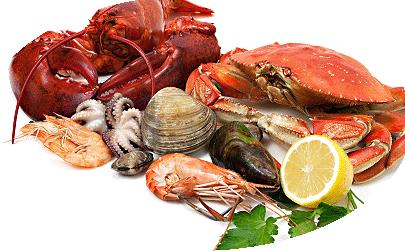Every parent looks forward to the day the nursing bottle can be put away and their child moves to solid foods. The transition is a delicate one as there are several allergenic foods for babies so a parent must be careful. Knowing what foods to avoid and which are most often associated with allergies can help you make the switch easier for you and your child.
Highly Allergenic Foods for Babies
Some foods have a greater chance of setting off an allergic reaction than others. Since there are over 150 allergenic foods, it can be hard to know exactly what to avoid. Some pediatricians advise you to wait to give your baby certain foods until they are at least three years old, but other doctors differ in opinion. You should seek the advice of your baby’s pediatrician before introducing new foods to your child. Besides giving guidance on what foods to avoid, the doctor can tell you what symptoms indicate an allergic reaction. These foods have been known to be highly allergenic foods for babies:
- Milk
- Eggs

- Peanuts/Peanut Butter
- Tree nuts (such as walnuts or almonds)

- Fish
- Shellfish

- Soy
- Wheat

- Berries
- Cinnamon

- Mustard
- Corn

- Yeast
- Tomatoes

- Chocolate
- Sugar

- Citrus fruit
- Peas

- Coconut
- Pork
Start Gradually to Identify Any Food Allergies
The most common piece of advice a pediatrician gives a parent about introducing solid foods to a baby is to try one new food at a time. This allows you to easily identify which foods cause an allergic reaction in your child. If you give your baby more than one new food in the same time period, you will not know which food your baby is allergic to. This will force you to work backwards, eliminating all the foods from your child’s diet and then reintroducing them one at a time.
The best way to introduce new foods is to try one at a time. After you give your baby a new food, wait about four to five days before you let your child try another one. As long as the foods are healthy and good for your baby, there is no reason to remove any foods from your child’s diet while adding new ones. If there is no sign of a reaction and your baby tolerates the new food, feel free to add another one.
How to Know Food Allergy in Babies
Highly allergenic foods for babies can set off an allergic reaction in some children, but not in all. If a child is sensitive to a certain food, his body is reacting to the proteins in it. This is considered a food allergy. If there is an allergic reaction, it will be seen fairly quickly. Symptoms range from mild to severe or life-threatening. Signs of a food allergy are similar to other conditions, so it is vital you know how to identify it from other ailments.
Signs and Symptoms of Food Allergies in Babies
- Hives
- Swelling
- Itching
- Skin rash
- Wheezing
- Difficulty breathing
- Sneezing
- Tightness in throat
- Vomiting
- Nausea
- Diarrhea
- Feeling faint
- Pale skin
- Loss of consciousness
- Circulation problems
If your child is having multiple symptoms over several different parts of his body, seek advice right away as it may be a severe reaction that could be life-threatening. This may be a sign of anaphylaxis, which needs medical care immediately.
Symptoms or Ailments Confused with Food Allergies
Several different food-related illnesses can cause reactions similar to food allergies, but are not the same. Here are some possible causes:
- Food poisoning – typically caused by the consumption of undercooked or spoiled food, it can cause vomiting and diarrhea.
- Skin irritations – acidic foods, such as tomatoes or oranges, can cause skin reactions.
- Ingredient or drug reactions – shakiness, restlessness or agitation can be caused by items like sugar or caffeine found in candy and soda.
- Diarrhea – too much sugar from juices, fruit drinks or soda can cause this reaction in young children.
- Food sensitivity can cause similar symptoms but is not the same thing as a food allergy. Instead of the immune system fighting against the food, your body has a hard time digesting it causing bloating, diarrhea, stomach problems and loose bowels.
- Chemicals – though rare, sometimes additives like preservatives or dyes are the cause of the allergic reaction, not the food itself.
How to React When Your Baby Has Food Allergy
Highly allergenic foods for babies can cause all types of symptoms. If your child’s reactions are mild, like a rash or hives, you should make an appointment with your baby’s pediatrician to evaluate. If your doctor is able to pinpoint the cause, you will be given specific instructions on how to avoid the symptoms. No matter the findings, you will be given advice on how to avoid further food allergy reactions.
Keep in mind, a mild reaction to a food can become severe over time with continued exposure. The same is true that a food allergy can also disappear over time. For example, milk and egg allergies often go away as your child grows older. However, allergies to shellfish and peanuts tend to remain.
When to Call 911
A severe allergic reaction can rapidly become life-threatening. After eating, if your baby has severe diarrhea, vomiting, swelling of the face or lips, or difficulty breathing or wheezing, you should call 911 immediately. Do not wait to contact your pediatrician. Call 911 for immediate medical assistance.